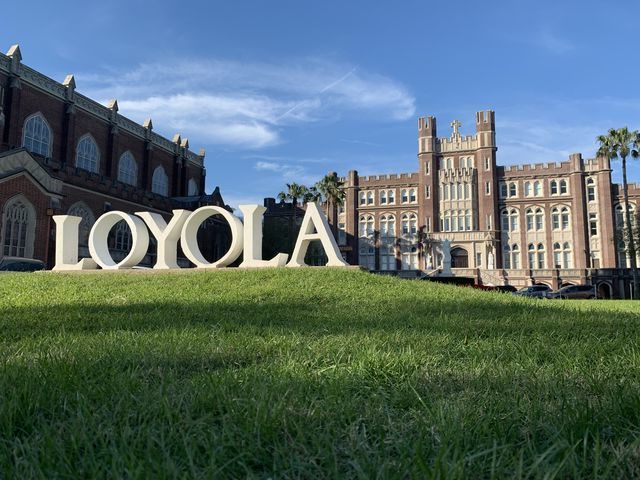Opinion: ICWA is vital to Native Sovereignty
The Loyola sign sits facing St. Charles on a sunny day. The university is now allowing students to use the CBORD app to open doors controlled by card access.
August 18, 2019
*WRITER’S NOTE: This opinion piece was written from the perspective of a non-Native observing the complications of ICWA and the court system from the perspective of a white adoptive family.
The constitutionality of the Indian Child Welfare Act, or ICWA, is currently being debated though the federal court system. I have long sided with the plaintiffs in their displeasure and complaints with ICWA. I currently have a Native American foster sister; she is a member of the Blackfeet Tribe of Montana. There is little to no chance my family will be able to adopt her, because of her Native American heritage and identity. I used to struggle heavily with this reality and blamed ICWA. After intensive research over the past year, I have changed my mind. ICWA is preventing my sister’s adoption, but I am in full support of the constitutionality and need for it.
ICWA was enacted in the 1970s to prevent the federal and state government from removing children from their home without cause. Over 70% of tribal children were removed and placed with white families. This destroyed tribal language, religion, culture, traditions and sovereignty. In short, ICWA created a new process, under which Native American children were to be placed in care of the tribe, in the event of unfit parents.
ICWA was ruled unconstitutional by the Northern Texas District Court, but was appealed to the 5th District Court of Appeals in New Orleans, LA. The 5th Court reversed the decision of the lower court and maintained the constitutionality of ICWA. This preserves tribal sovereignty and the responsibility of the federal government to help reverse the damage they caused prior to the passage of ICWA.
ICWA does not make it impossible for a white family to adopt a Native child, but in my case it’s nearly impossible. The plaintiffs, with whom I can easily relate, are fueled by their specific circumstance, as was I. The importance of ICWA is not for families like ours, but for the federal government, state government, Child Protective Services and other governmental agencies to prioritize the political ties and identity of the child, in relation to the Tribe. This is paramount. ICWA enables tribal governments to have a direct say in the future of its’ children. We, as adoptive families of Native children, need to understand and emphasize the importance of that bond.







